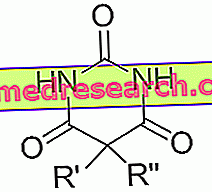
St. Anthony's Fire (or Herpes zoster) is a painful rash caused by the same virus that causes chickenpox. This pathogen has the ability, in fact, to remain silent in the human body, with the possibility of being reactivated in adulthood, especially during periods in which the immune defenses are lowered. When it awakens from latency, the varicella-zoster virus multiplies and rises along the course of a peripheral nerve until it reaches the skin, causing neuropathic pain and vesicular lesions. St Anthony's fire affects one person in four over the course of one's life: the risk of developing it increases with age, affecting above all the "over 50".
According to the results of a British study presented on "Neurology" by researchers at the University College London, Herpes zoster infection in young adults may increase the risk of a cardiovascular event (" Herpes zoster as a risk factor for stroke and TIA " ). The results of this research argue in particular that, in people under the age of 40, shingles increase the risk of stroke by 75% and heart attack by 50%. Moreover, these subjects have a 2.4 times higher probability of incurring a transient ischemic attack ( TIA ). At the conclusion of their study, the authors stress the importance of controlling the risk factors for stroke and heart attack - such as smoking, hypertension, obesity and high cholesterol levels - in patients with herpetic infection .
According to another study conducted by British researchers at the London School of Hygiene and Tropical Medicine and published in "Clinical Infectious Diseases", the risk of stroke would increase significantly immediately after the appearance of the first symptoms of Herpes zoster (" Risk of Stroke Following Herpes Zoster: A Self-Controlled Case-Series Study "). The research team found that the risk of stroke was 63% higher in the first 4 weeks after herpes zoster reactivation (compared to the patients' baseline risk) and decreased slowly over the next 6 months. According to the study, however, antiviral drugs against Herpes seemed to provide some degree of protection: in patients undergoing therapy, the risk of stroke was lower than in untreated subjects.



